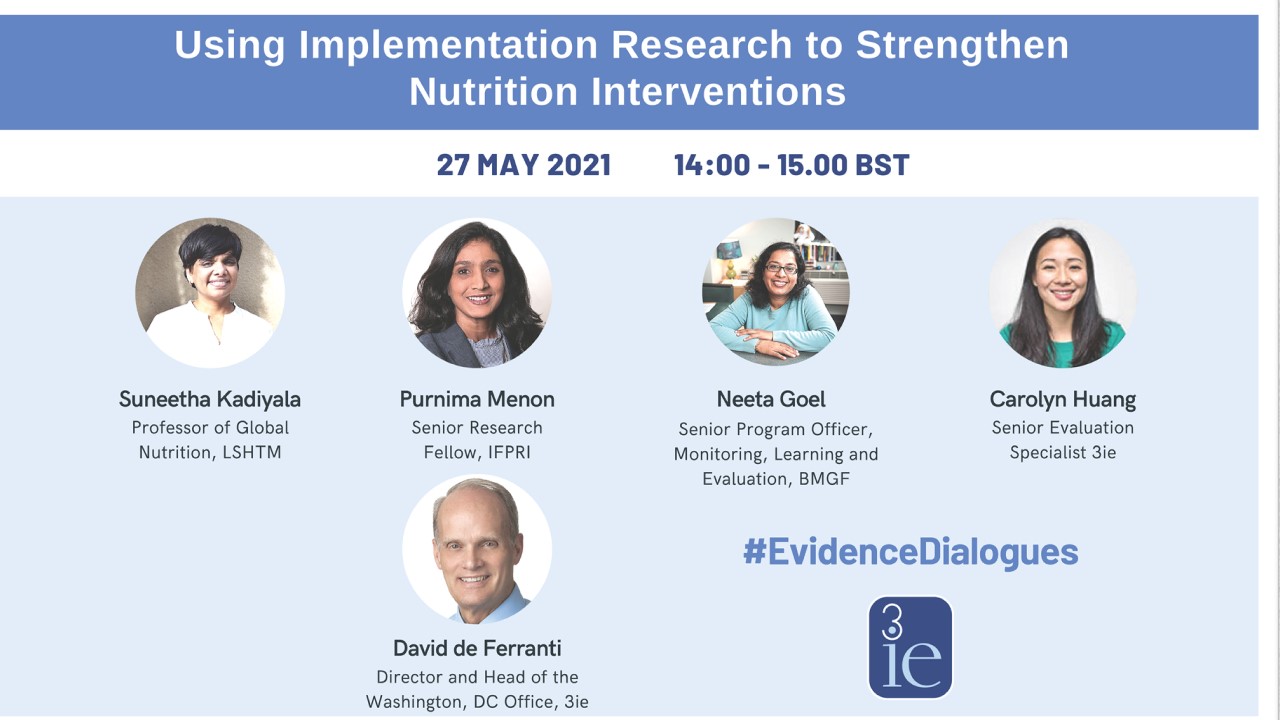Evidence Dialogues: Implementation research is key to understanding why nutrition interventions work – or don’t
Food may be one of the most basic human needs, but designing effective development interventions to provide the world’s undernourished enough to eat is anything but straightforward.
“In the face of the pandemic, malnutrition has been called a threat multiplier due to its disproportionate effect on the poor and vulnerable,” said 3ie senior evaluation specialist Carolyn Huang. “Delivery of effective nutrition programming is needed now more than ever, but it requires operating in complex and resource-poor contexts.”
In Thursday’s 3ie Evidence Dialogues webinar, nutrition experts shared the reasons implementation research is so important in the field, as well as some examples of key takeaways from already-completed studies.
“Implementation research is critical in many different ways because building knowledge around programs and scaling solutions is so important,” said Purnima Menon, a senior research fellow at the International Food Policy Research Institute.
In one example of that type of knowledge-building, implementation research shed light on the strategies which were effective at prompting recall about nutrition topics among participants in women’s self-help groups, said Neeta Goel, Senior Program Officer for Monitoring, Learning and Evaluation at the Bill and Melinda Gates Foundation.
“What are the mechanisms that help us get there? How do we improve understanding? How do we improve recall when women are being bombarded with 100 different topics?” Goel said.
Implementation research found that women appreciated receiving messages through multiple types of media – like pamphlets, presentations, and videos. Also, pregnant women and their mothers-in-law were actively engaging with the program, but men were not, Goel said. These nuanced findings help to tweak future program designs.
“We’re moving away from just doing impact evaluations,” Goel said. “Implementation studies and process evaluations have been very useful across the board.”
Panelists agreed that implementation research is an excellent complement to impact evaluations, especially to help understand why effects might be bigger in some contexts or among some population subgroups. In some cases, the results show that programming has been less effective among the neediest people.
“Our interventions have taken root much better in terms of uptake where household conditions are already better off,” said Suneetha Kadiyala, a professor of global nutrition at the London School of Hygiene and Tropical Medicine. “We really need to take the context head-on instead of seeing it as some pesky little detail.”
Implementation research should be built into programming wherever possible, panelists said.
“There are always implementation bottlenecks,” Menon said. “There are always things that prevent full-scale uptake of programs.”
To watch the full discussion, the recorded video is available here.

